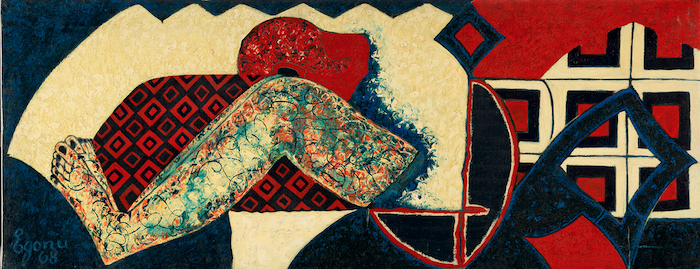A poet and a psychologist consider the necessity of mourning our dead.

By Clair Wills
“Maybe I didn’t die properly,” says Jamie (played by Alan Rickman) in Anthony Minghella’s early film Truly, Madly, Deeply. “Maybe that’s why I can come back.” His partner, Nina (Juliet Stevenson), has been driven mad with grief, following his sudden death while undergoing minor surgery. He wasn’t dangerously ill, and she hadn’t said good-bye. It is some years since his death, but she has made no progress at all in overcoming her grief; her despair has simply grown more acute. She cannot face her life without him. And she is so desperate for Jamie to return that he does—a little grayer than before, rather colder than before, but otherwise much the same. It turns out he’s been hanging around since he died—invisibly watching over her, but also just spending time lazing in the park, learning Spanish, and looking at the living.
Nina’s love, or perhaps her need for him, allows him to rematerialize and he joins her, moving into her apartment and hiding whenever the doorbell rings. Or maybe she joins him. At one point in the film she reluctantly drags herself away from him to go back to the office. She thinks she’s just late for work, but she has been missing for days. The two of them are caught in a kind of limbo. He didn’t die properly, and she can’t grieve properly. As the plot unfolds we realize that he has come back in order to break the connection. He behaves so impossibly—crowding her out of the apartment into which he invites scores of his ghostly, blokey friends—that she learns to accept that a life with the dead is a dead end. Nor is it much fun for the ghosts, caught forever in the moment of their deaths, permanent spectators of life’s unfolding drama. The message of the film is, Let them go.
As deaths from Covid-19 multiply across the globe, so do numbers of the bewildered bereaved. The trouble with the film’s well-meaning advice is that it presumes that the living occupy a position securely on one side of the border between life and death. But accounts of bereavement suggest that isn’t exactly the case. In 2008 the poet and philosopher Denise Riley’s grown son Jacob died suddenly of an undiagnosed heart condition. In the weeks and months following his unexpected death, she kept a diary recording its impact on her and especially on her experience of everyday being-in-the-world. Time stalled for her, or was “arrested,” like her son’s heart.
It wasn’t simply that the concept of a personal future was now hard to grasp, or to bear, with the role of “mother” that she had been inhabiting now wounded and under attack. But the experience of sequence itself—one event or one word following another—was no longer available to her. Words came out of her mouth askew; basic inductions, such as that the sun will rise tomorrow, no longer seemed to hold true; language as a whole, with its grammatical past, present, and future, was fatally compromised. Riley diagnoses this condition as one of sharing the time of the dead. Even though we may be able to narrate the story of a death with temporal markers such as “and then” and “after that,” when we think of our dead they are gone from us now, not then.
Complete Article ↪HERE↩!
